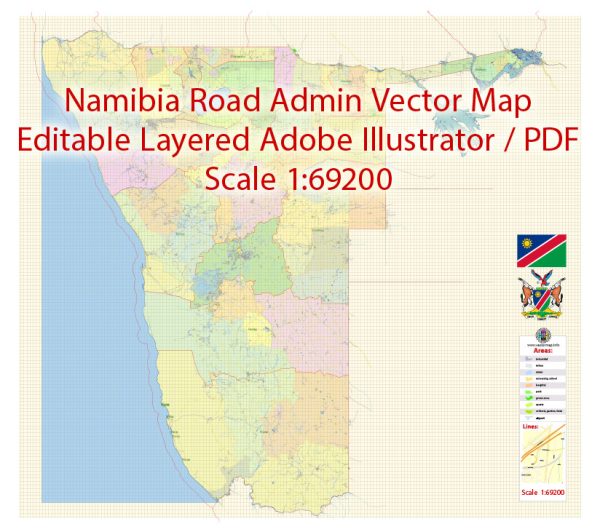Namibia, located in southwestern Africa, has a rich and complex history that spans thousands of years. The country’s history is characterized by indigenous cultures, colonial rule, and a struggle for independence. Here’s a brief description of Namibia’s history:
- Indigenous Peoples: The region now known as Namibia has been inhabited by various indigenous groups for centuries, including the San, Damara, and Nama peoples. These groups had their own distinct languages, cultures, and ways of life.
- European Exploration: European exploration of the Namibian coast began in the late 15th century, with Portuguese navigators. The region became a waypoint for ships traveling to and from the Indian Ocean, leading to the establishment of trading posts.
- German Colonization: In the late 19th century, Germany established a colony in the region known as German South West Africa. This colonial period was marked by brutal repression and the forced labor of the indigenous populations.
- South African Rule: After World War I, Namibia became a League of Nations mandate under South African administration. The apartheid policies of South Africa were enforced in Namibia, leading to significant social and political unrest.
- Struggle for Independence: The Namibian War of Independence (1966-1990) was a protracted armed conflict between the South African government and various independence movements, most notably the South West African People’s Organization (SWAPO). It resulted in widespread suffering and displacement of people.
- Independence: In 1990, Namibia finally gained its independence from South Africa, and SWAPO leader Sam Nujoma became the country’s first president. Namibia’s independence was seen as a significant achievement in the broader struggle against apartheid in the region.
- Post-Independence Era: Since independence, Namibia has made progress in areas such as education, healthcare, and infrastructure development. The country has also implemented policies to address historical injustices, such as land reform, aimed at addressing land ownership disparities inherited from the colonial era.
- Political Stability: Namibia is known for its political stability and democratic governance. It has held regular elections, and peaceful transitions of power have occurred.
- Economic Development: Namibia is rich in natural resources, including minerals and a growing tourism industry. Economic development and diversification have been ongoing efforts to improve the standard of living for its citizens.
- Cultural Diversity: Namibia is home to a diverse range of ethnic groups, each with its own languages and traditions. This diversity is celebrated through various cultural events and festivals.
Namibia’s history is a story of resilience, struggle, and the pursuit of self-determination. The country has come a long way since its colonial past and is now working toward a more prosperous and equitable future for all its citizens.


 Author: Kirill Shrayber, Ph.D. FRGS
Author: Kirill Shrayber, Ph.D. FRGS